What is CNC Precision Machining Aluminum Parts?
How can industries ensure high-precision aluminum parts without compromising on time or quality? Poor machining can lead to costly production delays and compromised product integrity.
Industries can ensure high-precision aluminum parts without compromising on time or quality by leveraging advanced CNC machining technology, skilled operators, and optimized processes. By using state-of-the-art CNC machines equipped with precise tooling and automated systems, manufacturers can achieve tight tolerances and complex geometries with minimal errors.
What is CNC Precision Machining?
CNC precision machining is a manufacturing process that utilizes computer-controlled machines to create high-precision parts from various materials, including aluminum. The process involves precise cutting, drilling, milling, and turning to achieve a high level of accuracy, which is essential for industries that require custom parts. The ability to produce custom aluminum CNC parts with tolerances as tight as 0.01 mm makes this process ideal for industries like automotive, aerospace, medical, and electronics.
In the case of aluminum machining, CNC machines are equipped with advanced tools to handle the complexities of the material, providing customized solutions for every part. This technology ensures that parts are produced with the desired precision and minimal human error.
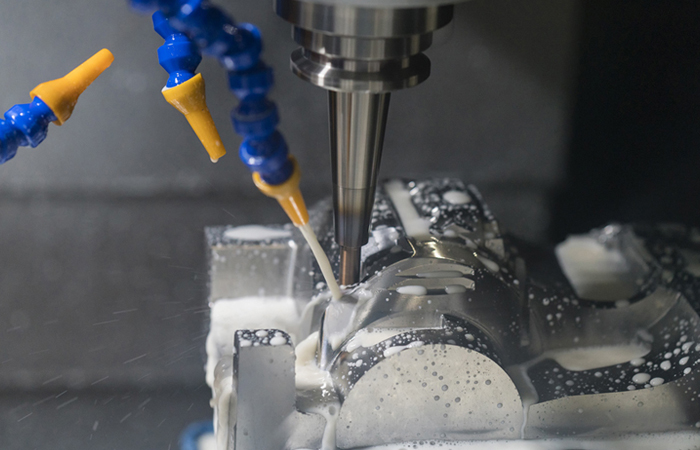
Why is Aluminum Ideal for CNC Precision Machining?
Aluminum is one of the most commonly used materials in CNC machining due to its excellent machinability, lightweight nature, and resistance to corrosion. It is also a cost-effective material, offering the perfect balance of durability and performance for various applications.
Aluminum’s unique properties, such as its low density, make it an ideal choice for custom aluminum CNC parts. It’s highly versatile and can be easily shaped into complex geometries with CNC aluminum machining processes. Additionally, aluminum custom parts provide a good balance between strength and weight, which is why it’s commonly used in industries like aerospace, automotive, and medical equipment.
Precision Requirements and Tolerances in Aluminum Machining
The ability to achieve tight tolerances is one of the defining features of CNC precision machining. For machined aluminum, achieving a tolerance of 0.01 mm is often necessary, especially in industries like aerospace and electronics, where even the smallest deviation can have significant consequences.
To meet these high-precision requirements, CNC machines use sophisticated software and advanced tooling that allow them to execute intricate designs with extreme accuracy. This precision ensures that each custom cnc part fits seamlessly into its intended application, reducing the risk of failure and minimizing waste.
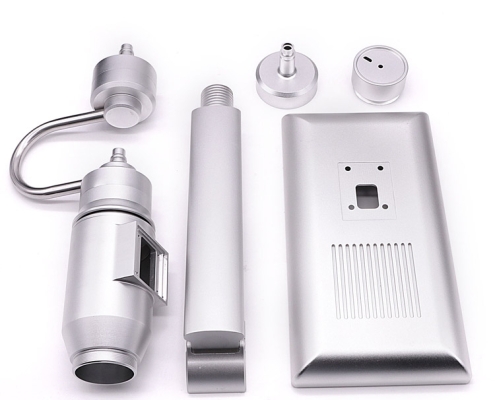
Advantages of CNC Precision Aluminum Machining
There are several key benefits to using CNC aluminum machining parts for your manufacturing needs:
1. High Precision: CNC machines can achieve extremely tight tolerances, ensuring that the final parts meet exact specifications.
2. Lightweight and Strong: Aluminum is much lighter than many metals, making it particularly attractive for industries like aerospace and automotive, where weight reduction is critical for performance and fuel efficiency. Despite its low density, it is still strong enough to handle a wide range of applications.
3. Corrosion Resistance: Aluminum naturally forms a protective oxide layer, providing resistance to rust and corrosion. This makes it a valuable material for parts exposed to harsh environmental conditions or requiring long-lasting performance without degradation.
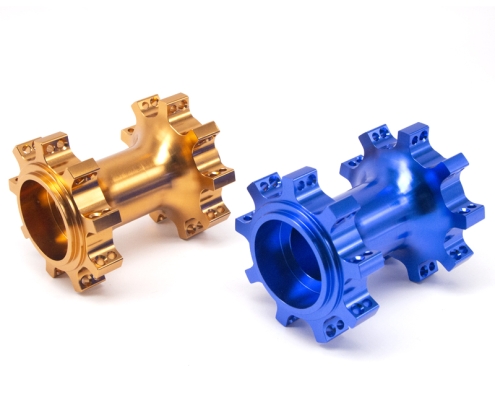
4. Excellent Machinability: Aluminum is relatively easy to machine compared to other metals like steel. It can be cut, milled, drilled, and turned with high accuracy, which allows manufacturers to create intricate designs and custom features efficiently.
5. Thermal and Electrical Conductivity: Aluminum offers excellent conductivity, making it a preferred material for electrical components like heat sinks and connectors.
6. Cost-Effectiveness: Aluminum is often more affordable than other metals like titanium or steel, while still providing a good strength-to-weight ratio, making it an ideal option for custom parts requiring balance between cost and performance.
CNC Machining Techniques for Aluminum Parts
Different machining techniques are used in CNC machining to meet the specific needs of aluminum parts:
-
CNC Milling: This is one of the most common methods where a rotating cutter removes material from the aluminum workpiece. It’s used to create flat surfaces, complex geometries, and features like slots, holes, and pockets.
-
CNC Turning: A lathe-based technique where a rotating aluminum workpiece is shaped by a cutting tool. This technique is ideal for cylindrical parts like shafts, bushings, and threaded components.
-
CNC Drilling: CNC machines use rotating drills to create holes in the material. Drilling can be used for both shallow and deep holes, as well as to make precise holes with minimal deviation.
-
EDM (Electric Discharge Machining): A technique that uses electrical sparks to erode material, often used for creating intricate or complex shapes that would be challenging to achieve with traditional cutting methods.
-
Grinding: For parts requiring an ultra-smooth finish, grinding can be used after other machining processes. It’s often employed to achieve tight tolerances or smooth surfaces on aluminum parts.
-
Laser Cutting and Waterjet Cutting: Laser cutting uses a focused laser to cut aluminum, while waterjet cutting uses high-pressure water mixed with abrasive materials to cut the material. These methods are useful for creating intricate shapes or cutting thicker aluminum materials.
Surface Treatments and Finishing for CNC Precision Aluminum Parts
After machining, surface treatment and finishing are often necessary to enhance the functionality, aesthetics, and durability of aluminum parts. Some of the most common techniques include:
-
Anodizing: A highly effective surface treatment that increases the thickness of the natural oxide layer on aluminum, improving corrosion resistance and wear resistance. Anodizing also allows for a variety of colors to be added, making it useful in both functional and decorative parts.
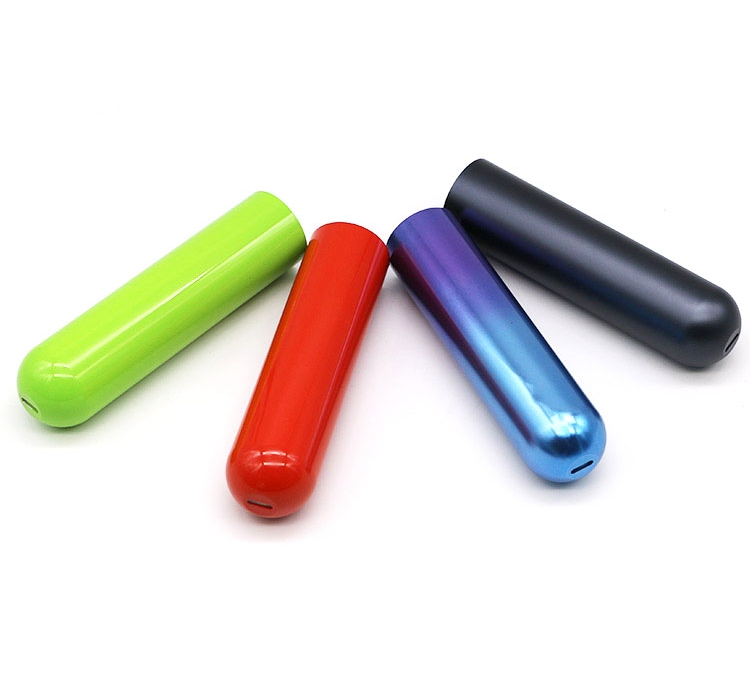
-
Polishing: This process provides a smooth, shiny surface and is often used for aluminum parts that need to look aesthetically pleasing, such as in medical devices or consumer electronics.
-
Powder Coating: A dry finishing process that uses a powder to coat the aluminum, creating a protective, durable, and visually appealing surface. Powder coating is used to protect parts from corrosion, scratches, and UV damage.
-
Painting: A conventional technique that involves applying paint to aluminum for aesthetic purposes or to add an additional layer of protection.
Challenges in CNC Aluminum Precision Machining
While CNC aluminum machining is highly effective, there are several challenges manufacturers must address:
-
Material Distortion: Due to the relatively low melting point of aluminum, heat generated during machining can cause thermal expansion or warping. This can lead to precision issues if not properly managed through techniques like cooling and careful planning of machining sequences.
-
Tool Wear: Aluminum is a soft metal, but its machining can lead to significant tool wear, especially when cutting large quantities. Proper tool selection, speed, and feed rates are critical to minimize wear and maintain precision.
-
Chip Removal: Aluminum produces fine, soft chips that can easily clog up the workpiece or machine. Ensuring efficient chip removal is essential to maintaining high-quality machining and preventing part defects.
-
Surface Finish: While aluminum naturally forms a protective oxide layer, machining can sometimes leave rough or unappealing surfaces, especially with high-speed operations. Additional finishing steps like polishing or anodizing may be necessary to achieve the desired surface quality.
Common Applications of CNC Precision Aluminum Parts
CNC-machined aluminum parts are widely used in several high-demand industries, including:
1. Automotive Manufacturing
In the automotive industry, CNC-machined aluminum parts are essential for reducing vehicle weight and improving fuel efficiency. Aluminum’s combination of strength and lightweight properties makes it ideal for manufacturing critical automotive components such as engine blocks, transmission housings, wheels, and chassis parts. The reduction in weight not only enhances fuel efficiency but also boosts performance and handling. Additionally, aluminum is highly corrosion-resistant, ensuring durability and longevity in various vehicle parts.
2. Medical Devices
CNC-machined aluminum parts are indispensable in the medical device industry, where precision and hygiene are paramount. These parts are used in equipment such as surgical instruments, diagnostic tools, implants, and hospital machinery. Aluminum’s non-corrosive nature and the ability to be easily sterilized make it an excellent choice for parts that need to meet stringent health and safety standards. Precision is critical in medical devices to ensure the devices function correctly and safely. CNC machining ensures the parts are manufactured to the tightest tolerances and with high repeatability.
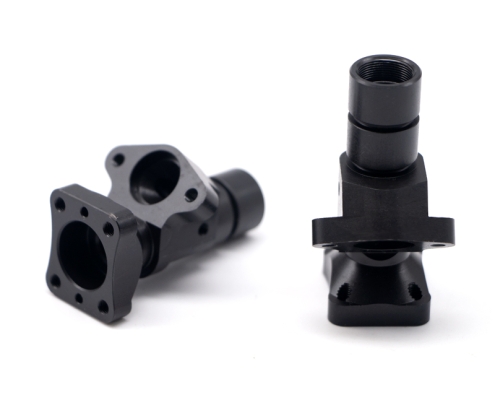
3. Aerospace
In aerospace, the use of CNC-machined aluminum parts is crucial for reducing the weight of aircraft components while maintaining strength and durability. Aluminum’s lightweight properties make it ideal for parts like engine components, structural supports, wing fittings, and fuselage frames. Aerospace manufacturers rely on CNC machining to produce parts with extremely tight tolerances that meet rigorous safety and performance standards. Furthermore, aluminum’s resistance to corrosion and ability to withstand extreme temperatures make it a preferred material for parts exposed to harsh flight conditions.
4. Electronics and Optical Technology
CNC machining plays a significant role in the electronics and optical technology industries, where lightweight, precise, and durable materials are required for housings, enclosures, and connectors. Aluminum is often used for manufacturing casings for devices like smartphones, laptops, tablets, cameras, and optical instruments. Aluminum’s excellent thermal conductivity helps dissipate heat generated by electronics, preventing overheating. Additionally, CNC machining ensures the tight tolerances required for complex geometries and precise fitting, which is critical for assembling intricate optical systems and electronic components.
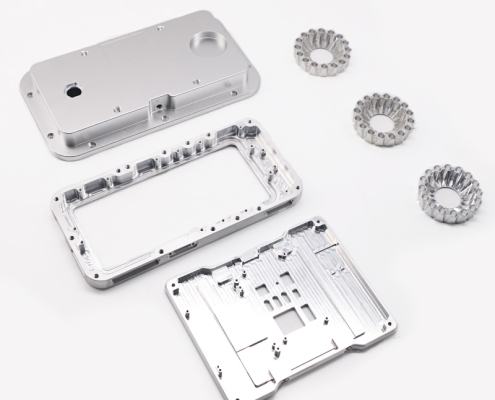
How to Choose the Right CNC Precision Aluminum Parts Manufacturer?
When selecting a manufacturer for custom aluminum CNC parts, it’s important to consider the following factors:
1. Experience and Expertise
When choosing a CNC aluminum parts manufacturer, consider their experience and expertise in handling complex machining projects. Manufacturers with years of industry experience understand the unique challenges of aluminum machining and are equipped to deliver high-precision parts, ensuring consistency and quality throughout the production process.
2. Certifications and Quality Control
Look for manufacturers that adhere to international quality standards such as ISO 9001. This certification demonstrates their commitment to maintaining strict quality control practices. A well-established quality control system ensures that all parts meet your specifications and are produced with the highest standards in mind.
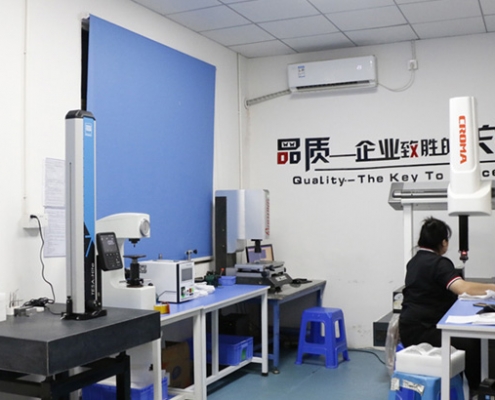
3. Customer Service
Reliable customer service is crucial for smooth project execution. A good manufacturer should offer responsive communication, support in case of any issues, and timely updates throughout the production process. Strong customer service ensures that potential concerns are addressed quickly and that production deadlines are met without surprises.
4. Production Capabilities and Lead Time
Assess the manufacturer’s ability to handle both small batch and high-volume production efficiently. Additionally, verify their capacity to meet your required lead times. A manufacturer that can scale production while maintaining quality and keeping lead times short is a critical factor for on-time delivery and cost-effectiveness.
5. Pricing and Value
While price is important, it should not be the sole factor in your decision. Compare quotes from different manufacturers and ensure transparency in pricing. Consider the value you’re getting in terms of quality, expertise, and after-sales support, rather than just focusing on the lowest cost.
6. Customer Reviews and Reputation
Check customer reviews, testimonials, and case studies to gauge the manufacturer’s reputation. A solid reputation in the industry indicates a reliable partner who delivers quality work consistently. Positive feedback from previous clients shows that they can be trusted to handle your specific machining needs.
Start Your CNC Precision Machining Aluminum Parts at VMT
At VMT, we specialize in delivering high-precision CNC aluminum machining parts for industries around the world. With over 14 years of experience, advanced machinery, and a commitment to quality, we provide aluminum machining services tailored to your specific needs. Whether you’re looking for custom aluminum parts or need CNC aluminum parts with tight tolerances, we ensure fast delivery without compromising on quality. Start your project with us today!
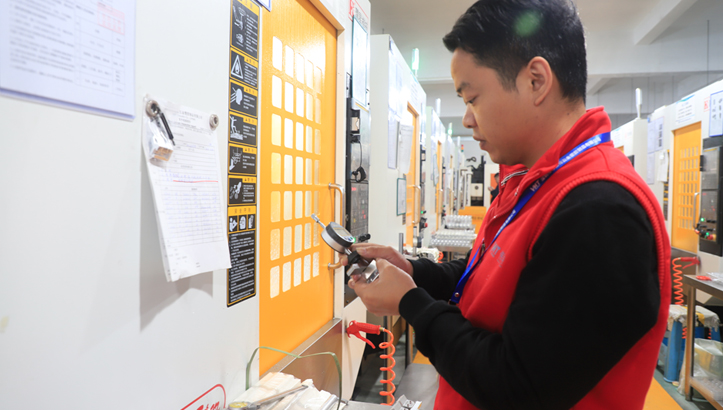
In Conclusion
CNC precision machining for aluminum parts is a powerful manufacturing process used to produce high-quality, custom parts for a wide range of industries. The ability to achieve tight tolerances, high-speed production, and complex geometries makes it invaluable for applications in aerospace, automotive, medical devices, and beyond. With advancements in technology and materials, CNC aluminum machining will continue to evolve, enabling the production of even more precise, durable, and cost-effective parts in the future.
By understanding these key concepts, industries can optimize their use of CNC machining, ensuring they produce aluminum parts that meet the rigorous demands of modern manufacturing without compromising on quality or performance.
More Resources: CNC Machining Methods, Materials, And Advantages Of Aluminum Parts
Frequently Asked Questions About CNC Precision Machining Aluminum Parts
What is the Best Aluminum for CNC Machining?
The best aluminum for CNC machining is typically 6061 aluminum. This alloy is widely used because of its excellent machinability, strength, and corrosion resistance. It also provides a good balance of strength and weight, making it ideal for a range of applications, from aerospace to automotive parts.
Can a CNC Cut Aluminum?
Yes, CNC machines are excellent for cutting aluminum. With the right tools, speeds, and feeds, CNC machines can efficiently cut, mill, and shape aluminum with high precision, whether it’s for simple parts or complex geometries. Aluminum’s soft yet durable nature makes it a popular material choice for CNC machining.
Is 6061 Aluminum Good for Machining?
Yes, 6061 aluminum is one of the best alloys for machining. It is known for its ease of machining, good strength-to-weight ratio, and resistance to corrosion. It’s widely used in industries such as aerospace, automotive, and construction for parts requiring precise machining and a smooth finish.



